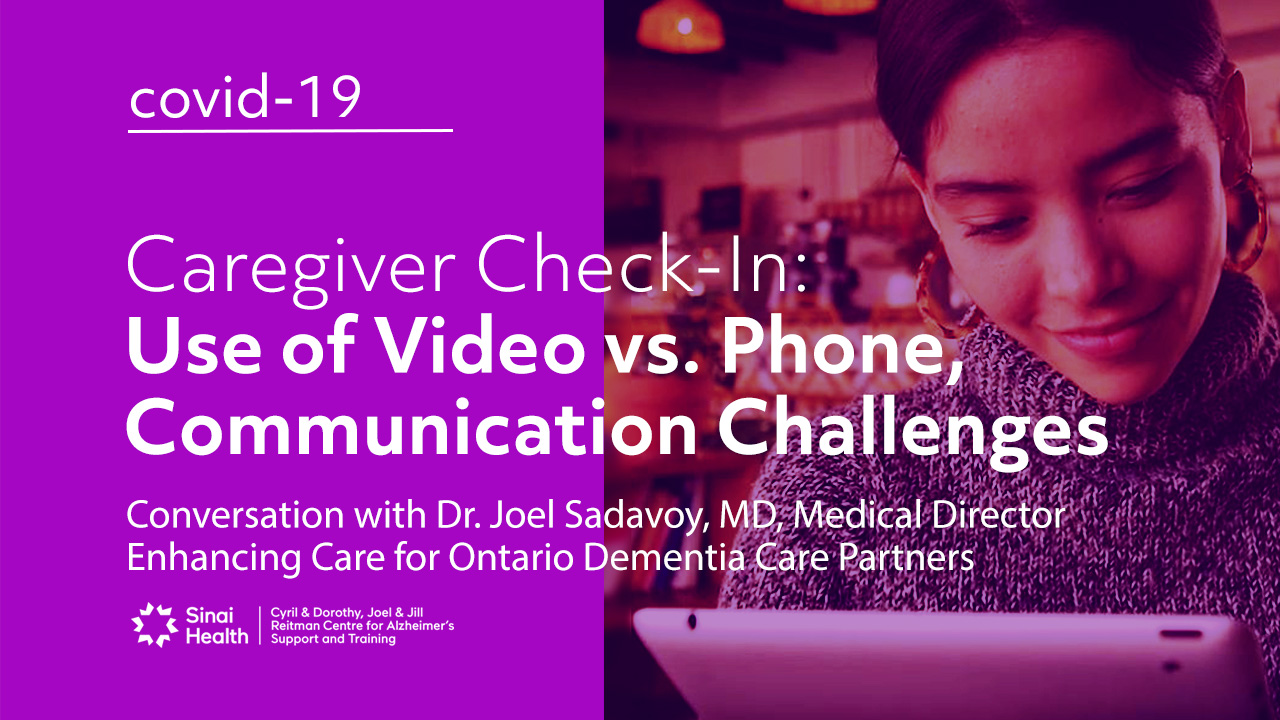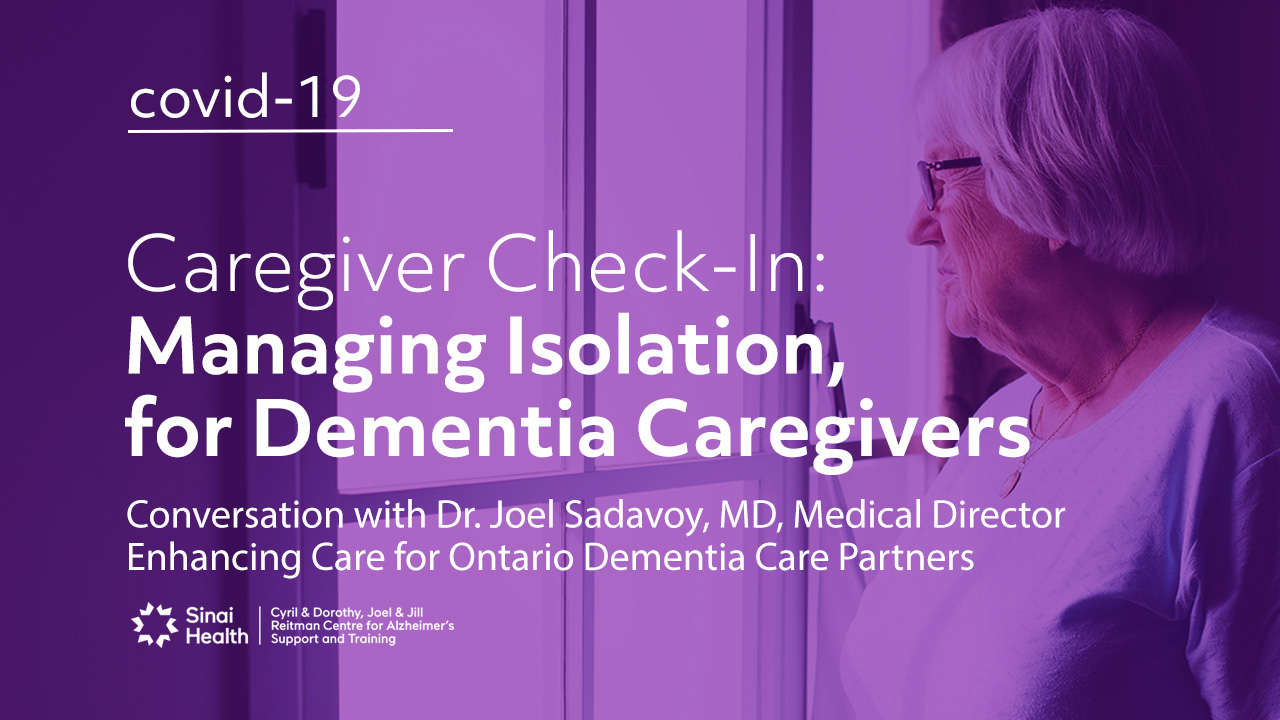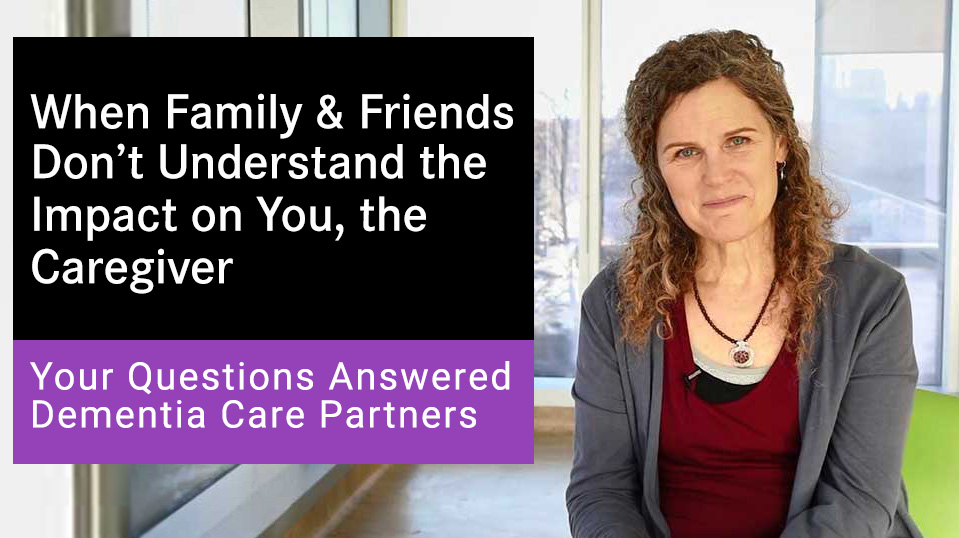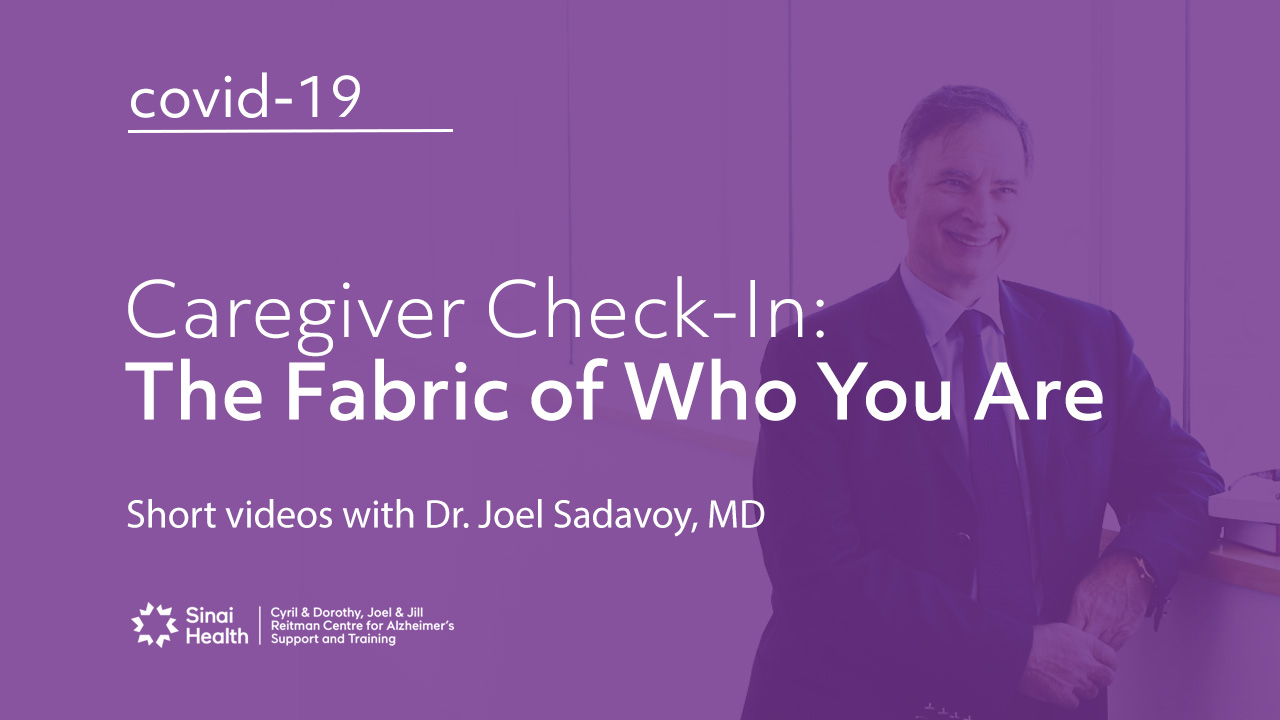
Should I use a video communications tool like Facetime or Zoom or the phone when I’m trying to connect with my family member with dementia from a distance, in the midst of contact restrictions imposed on us by the COVID-19 pandemic? This was one of the most resonant and emotionally charged questions raised by family caregivers and discussed with Dr. Sadavoy and other caregivers in attendance at our 2nd Caregiver Check-In event, held on May 14th.

Many people who care for a family member with dementia are accustomed to feeling isolated in their experience; of being the only one who knows what they are going through. COVID-19 adds a new layer onto the isolation that care partners may already be feeling. Responding to concerns shared by family caregivers in our Caregiver Check-In live online event, Dr. Sadavoy provides insight, perspective and some strategies for managing isolation.

When a person in your life is first diagnosed with dementia, it can be an overwhelming, frightening and isolating experience for you, the care partner. It can be additionally difficult for family or friends who haven’t witnessed these changes over time to understand or recognize the challenges that you’ve been facing. Our video and blog explores perspective and coping strategies.

Dr. Joel Sadavoy has created a series of videos discussing key caregiver challenges and choices that were shared by family caregivers in our first Caregiver Check-In: Challenges & Choices in COVID-19 event on April 23.

Doesn’t the person know that they have dementia? They may not. What can be perceived as denial or being stubborn can actually be a lack of awareness that there are any deficits. The medical term for this is “anosognosia” and it means “without knowledge of disease”. When anosognosia occurs there is a limited ability to have insight into ones true abilities. As a result, the person you are caring for may not be able recognize the symptoms of dementia. So as a caregiver/ partner, how do you cope?

Driving is one of the most challenging and emotionally charged aspects of dementia. While older individuals can drive safely, those with dementia generally cannot. Dementia gradually erodes key areas of function necessary for safe driving. These area include response times, judgement, problem solving skills, and sense of direction.






